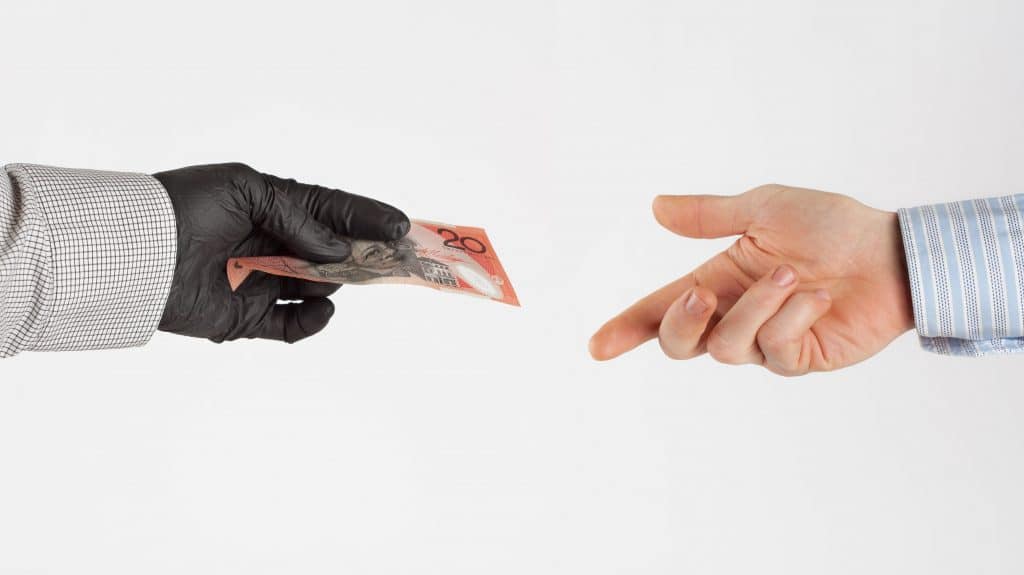In a great showing of not getting with the program, being behind the times, and not paying attention to reality; the UN’s INCB just criticized global cannabis reform efforts…saying they lead to higher use, and increased health issues. Where did the INCB get that? And why is one of our main global drug regulatory agencies, still talking about stuff we know isn’t true?
*This article is the personal opinion of the author about a recently published report.
What organization are we speaking about?
Before getting into why its so off-base and the implications of this off-baseness, and before we look at what was said, let’s see who we’re dealing with. The UN, or United Nations, is an intergovernmental organization. Sort of like an international government that’s meant to oversee and maintain peace and security issues, and keep things friendly between countries in the world. Established after WWII, it’s the largest international organization.
The UN doesn’t just ‘keep the peace’ though. It tends to get involved in other things. Like international drug policy. And this is where the International Narcotics Control Board (INCB), comes in. Technically, the INCB is an independent treaty body (international group that monitors legal implementation to a law), meant to monitor the implementation of three different UN drug conventions. It, therefore, is a big player in overseeing legal drug industries, as well as illegal ones. It works in conjunction with the Commission on Narcotic Drugs, UNODC, and the WHO, as one of the four components of international drug control.
The three conventions (or international drug treaties) which it works to oversee the implementation of, are the Single Convention on Narcotic Drugs from 1961, the Convention on Psychotropic Substances from 1971, and the Convention Against Illicit Traffic in Narcotic Drugs and Psychotropic Substances from 1988.
Cool that you’re here. Please head to the Cannadelics Weekly Newsletter to access direct updates; and to get yourself sweet promos on weed buds, vapes and smoking devices, edibles, cannabinoids (including delta-8), amanita mushroom extracts, and a host more. We’ve got it, come get it!
It is this body, the INCB, which recently made some statements about cannabis reform, that indicate it’s not onboard with current times, or possibly even reality. And that, perhaps, there are motives behind what’s being said, as it no longer gels with what we know. In fact, it sounds like anti-drug propaganda and fear-tactics; the same lines that made weed illegal in the first place. So, what did this body of experts meant to protect us from drugs, actually say?
What did the INCB say?
Every year an annual report is released. The statements in question, came from the 2022 Annual Report, put out by the INCB, which talks about cannabis reform efforts. And what does the INCB say about these cannabis reform laws in different countries? A lot of stuff which is not only not confirmed in research, but which goes back to prohibition era thinking. And seemingly seeks to reintroduce propaganda ideas which are proven untrue daily.
First off, it reminds that according to the Single Convention, that cannabis is a very addictive drug which is likely to be abused; and that it shouldn’t be used outside medical and scientific research. According to this notion, it says that recent legalization policies have led to higher use rates, which means an increase in health problems and psychotic issues.
It goes on to complain that today’s industry actually targets underagers, making them believe there are no risks; and that legalization in general has had a negative impact because models vary between countries. It says recreational markets make an issue for people who want medical services, saying recreational policies lead to lessened access for medical treatment. It also mentions that governments of different countries are confiscating chemicals which aren’t scheduled, and seems concerned about where these substances go.
It states that the intention to reduce crime and black markets with legalization, is not useful. And states that in legalized places, there are still strong black markets. It says that Uruguay’s industry is 50% black market, Canada’s is 40%, and California’s is 75%.
Why the INCB is not only wrong, but dangerous when it comes to cannabis reform
Cannabis isn’t a physically addictive drug, and it doesn’t cause any mentionable withdrawal. That there’s a use disorder attached according to Western medicine, and that this report (or any organization) talks about the problems of addiction and withdrawal, are laughable. What it does show, is that when something is repeated enough times; people start to believe it, regardless of how little sense it makes. There are plenty of examples of real drug addiction and withdrawal issues, and the majority right now are for pharma products, prescribed by doctors.

Anything that messes with the brain can lead to a psychological dependence, but this is not the same as physical dependence. Some drugs really are hard to get off, like opioids, alcohol, and benzos. This is 100% different, as they cause sickness to the user in different forms, which often drives the user back. Cannabis simply doesn’t do this. If a person is mentally stable, there shouldn’t be a problem, something that can’t be said of physically addictive drugs.
When a person has mental issues, this can change things, and make for a psychological dependence in order to help the mental deficit. This should never be confused with physical addiction, or the ability for physical withdrawal. What it should do, is bring up the question of how things like depression, lead to psychological dependence on something, and how mental issues and using drugs, are so often linked. From there, you might want to think about how our societies function, and why people are so unhappy. But do that before you call cannabis an addictive drug.
This discrepancy is seen clearly in the comparison with drugs that actually cause addictions, like opioids, meth, benzos, and alcohol. Plus, there are still no deaths directly attached to cannabis, and that says a lot. Sure, it can exacerbate a pre-existing health condition, but that’s not included with direct deaths. Pre-existing conditions are affected by a range of factors, often not drug-related. A direct death means that a death was caused by only one factor. This is important as addicts are known to continue with dangerous drugs that can kill them, and cannabis users don’t face this quandary ever.
There is research that speaks of a cannabis death risk. But this is one of those times its good to remember that not all research is done with integrity, and its good to know who is funding what you’re reading. Cannabis is not a focus of rehab centers, its not a reason for concern medically (aside from temporary issues related to too much THC), and its not causing problems that are seen in society. Research even shows a lessening of road deaths in legalized locations. Possibly because its also linked to drinking less. Let’s remember, we don’t have to debate whether opioids or meth hurt people.
In terms of increased use, the research out there, particularly that from Uruguay which has had a recreational policy the longest, says otherwise. Considering the lack of danger, the realistic threat attached to an increase in use is negligible at best, but research shows legalization doesn’t increase use anyway. The INCB report speaks of the “likelihood of increased use,” because of cannabis reform, but this is unfounded, and the wording shows the inability to say there IS an increase in use.
There’s also nothing out there that relates to an increase in medical problems. And the report, just like the last point, doesn’t say it does, it just alludes to it. Which sounds like a fear tactic. It says that increases in legalization “may lead to various adverse medical and health effects and consequently raise the number of emergency visits and treatment admissions.” Despite cannabis showing usefulness in helping people get better from many issues, the INCB is floating the notion that it’s causing health problems. This is not reflected in research.

It does, however, go on to say this: “In all legalizing jurisdictions, the incidence of cannabis-related health problems rose following legalization of the non-medical use of cannabis. Those developments
have often been in addition to earlier increases that occurred after the introduction of medical cannabis use. Where legalization has opened up access to more harmful cannabis products such as edibles, a sharp increase in the overall health harm of cannabis can be observed.”
What it’s talking about is that sometimes people ingest too much THC. We all know this can cause negative symptoms temporarily, and likely has led to more hospital visits. The funny part? The INCB report specifically mentions black markets being as big, if not bigger, than legal markets. This uptick in THC intoxication therefore can’t be attached to legal selling. Legal dispensaries have caps on THC; its the black market that doesn’t adhere to this, and is responsible for the super-high THC products. Which indicates this is not a part of cannabis reform, but attached mostly to illegal markets.
More problems with this report
As far as cannabis increasing psychiatric issues, I’ll remind that psychiatric issues have no medical diagnosis. Which means they can’t be measured in the way they’re often spoken about. This is already concerning considering these ‘measurements’ are used to inform policy. This is 100% not my opinion, this is how the psychiatric industry works. All diagnoses on this front are the personal opinion of individual doctors. There is absolutely no resolute test that’s given to clarify a condition. Look it up if you question this. Now think of how often doctors differ in their personal opinions.
Even more detrimental is the idea that if there is a rise in mental dysfunction, that its being attached to cannabis, and not to the tons of chemicals we’re exposed to through the legal pharma market, air pollution, and food pollution. Maybe the same thing making people balloon out to inhuman sizes, also affects our mental being. Just to inject some logic in there.
In terms of targeting underagers, maybe it is true. But is this bad if no one is hurt? Why are we so concerned about a no-death toll medicine, being known to younger people? And for that matter, where is anything that backs up that it negatively affects anyone’s brain? I’ve seen a bunch of bad research to this degree, but nothing else. Cannabis has been used and documented in medical traditions for thousands of years, yet worrying specifically about the brains of younger people, never comes up. With such a wide population of cannabis users, wouldn’t this be visible the way it is with alcohol, or meth?
Next, should we care that countries have different policies? Countries have different overall governmental models as well. Is the INCB saying this shouldn’t exist? I find this to be one of the sillier complaints; that these different models somehow hurt something. Perhaps more attention should be put on countries that are violating human rights, and instituting the death penalty. Or perhaps the INCB is insinuating that different countries shouldn’t have the right to set up their own governmental models… seems like a dangerous sentiment.

Considering the INCB spoke so much of these never-seen dangers of weed, its then quite contradictory that it complains that legal markets keep sick people from getting treatment when needed. Not only have I never seen supply issues attached to the existence of recreational markets (literally never the issue), but its quite a turnaround to complain about the dangers of a drug, and then to complain about people not having enough access. Sounds like my mother making arguments for what’s convenient at the exact moment, with no thought to logic or consistency.
And last, but not least, it sounds like the INCB is concerned that governments are taking unscheduled compounds and feeding them back into a black market. Otherwise, what would the problem actually be with non-scheduled compounds getting confiscated (although ‘why’ they are confiscated is a bigger question considering the lack of scheduling.) If this really is a concern, it goes so much deeper than a cannabis issue. Or any drug issue. It actually speaks to the corruption of governments and regulating bodies; which somehow makes a huge amount of sense, considering the report its written in.
Conclusion
I could rip this apart further, but there’s no point. The only thing the INCB proves in this report about cannabis reform, is that there’s still a massive push against weed; likely by institutions like pharma companies which are losing huge amounts of money. And it shows that smear campaigns are still going strong even now, despite constant research and information to the contrary. All of which leads me to say, thank god we’ve got the UN and related agencies watching over us!
Hey everyone! Welcome to Cannadelics.com; where we get down and dirty with the independent reporting of cannabis and hallucinogens. Join us frequently to stay on top of what’s going on, and sign up to the Cannadelics Weekly Newsletter, to ensure you never miss a single thing.
The post UN’s INCB Criticizes Cannabis Reform; Using Fear-Tactic Lines appeared first on Cannadelics.
Via https://cannadelics.com/2023/04/14/uns-incb-criticizes-cannabis-reform-using-fear-tactic-lines/
source https://rosalinaklerkx.weebly.com/blog/uns-incb-criticizes-cannabis-reform-using-fear-tactic-lines
No comments:
Post a Comment